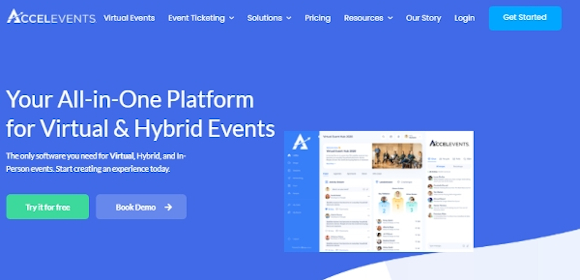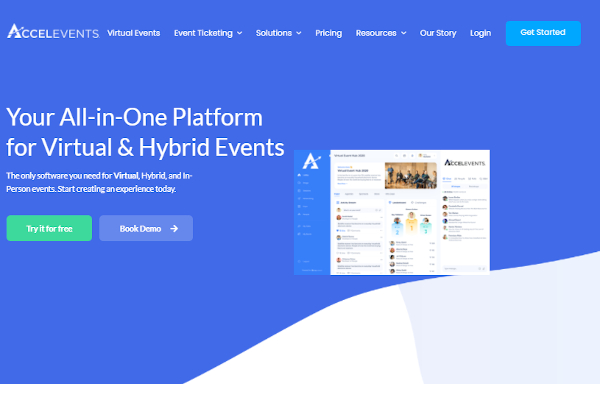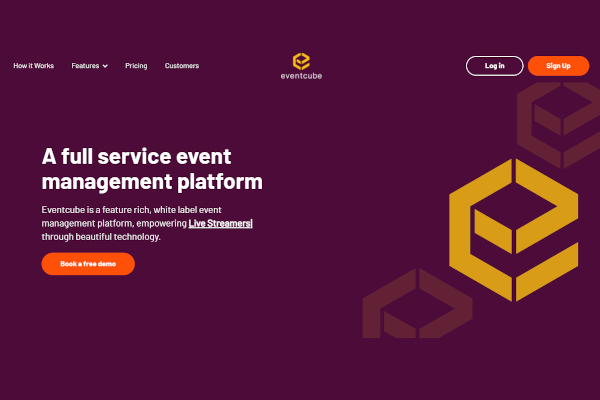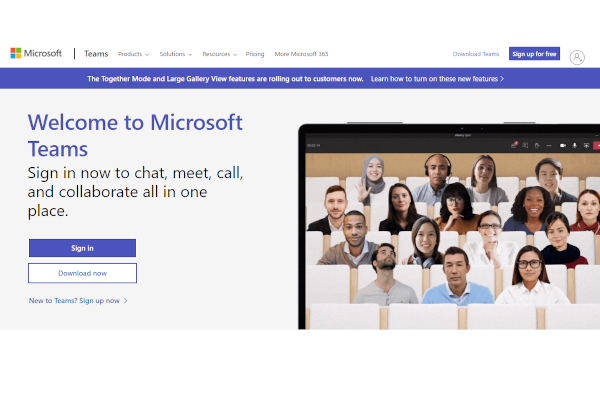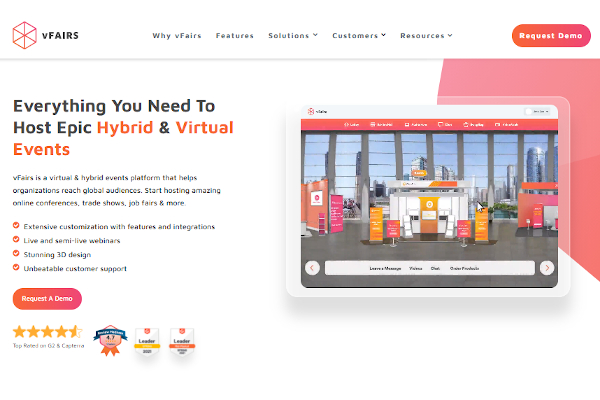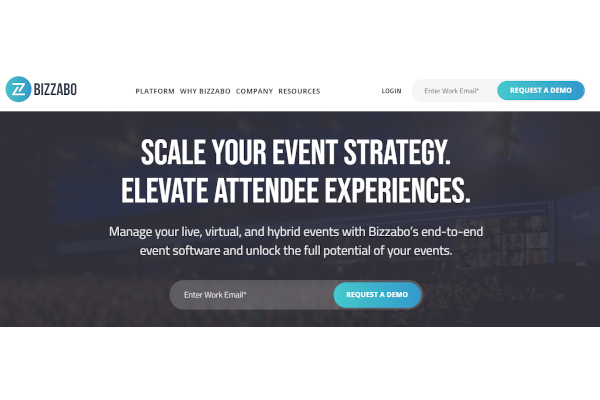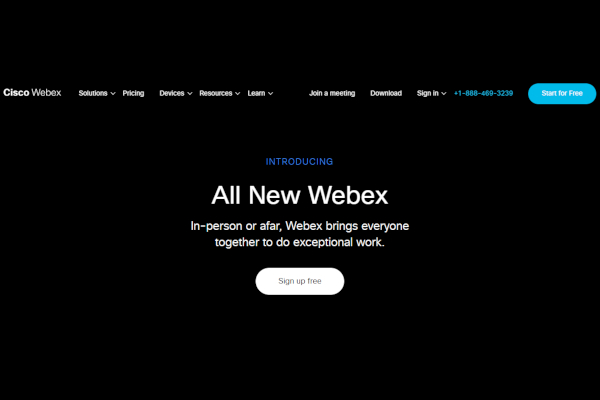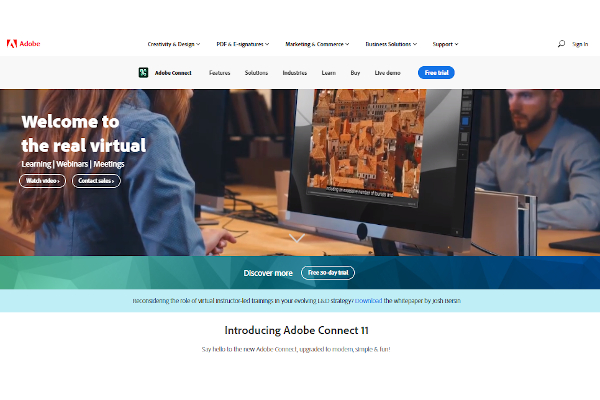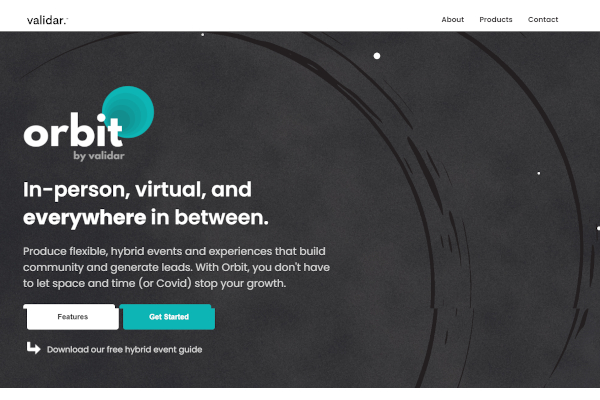As the COVID-19 pandemic continues to rage on where physical events remain suspended in other countries, hosting a virtual event is an effective way to continue facilitating fun, engaging events during quarantine. From brand awareness to less logistical matters, there are many advantages to hosting a virtual event. Here are some of the best virtual event software available right now.
15+ Virtual Event Software
1. Whova
2. Aventri
3. Accelevents
4. Eventcube
5. Zoom
6. Microsoft Teams
7. Vfairs
8. Floor
9. Bizzabo
10. Cisco Webex
11. GoTowebinar
12. Adobe Connect
13. Google Meet
14. Join.Me
15. Orbits
16. Whereby
What Is Virtual Event Software?
Virtual event software is a set of online tools for organizers to host an event that is taking place virtually that is expected to attend by a huge number of people tuning in. This software borrows components of event management software and video conferencing software as the tools are perfectly suited to use to host an online event such as seminars, concerts, expos, and many more.
Benefits
For organizers, virtual events are much more easier and flexible to organize than physical events where many logistical considerations have to be considered. Now that these events are taking place online, the logistics required for physical events are non-existent in organizing a virtual event. Virtual events are convenient for attendees as they can just simply attend from the comfort of their own homes. Because of this, these events can be widely attended by people around the world. Hosting a virtual event is also a way for businesses to market themselves to the attendees through inbound marketing. When virtual events are sponsored by many companies, it attracts more people to attend and it increases the brand management of these companies.
- Easier to organize than physical events
- Convenient for attendees as they can attend from their homes
- Widely accessible
- Increases brand awareness to the public
Features
Because virtual event software borrows components of some other software, it needs to have the basic components of a webinar software where organizers can adjust administrative settings such as muting microphones, closing cameras. The software should also have the ability to live broadcast the event to social media platforms, as well as providing on-demand programming where attendees can rewatch the event at any time. The software should be able to have similar tools of an event management software such as an event registration feature where attendees sign in their information to attend the event. Depending on the organizers and the nature of the event, the software should also have payment channels for attendees to pay for their tickets to the event.
- Webinar application-like settings
- Livestreaming and on-demand viewing on social media
- Registration system
- Ticketing system with payment channel embedded.
Top 10 Virtual Event Software
1. Accelevents
Accelevents helps organizers plan perfect virtual events that emphasize “growth acceleration” with features such as live streaming, consumer engagement, and sponsors gathering through marketing. Founded in 2015, the company has 51 employees with annual revenue of $8.6 million.
2. Zoom
Zoom’s powerful, flexible tools allow organizers to use their teleconference software tools to host the best events smoothly. Founded in 2011, the company has 2,700 employees and annual revenue of $2.65 billion.
3. Microsoft Teams
Microsoft Teams’ helps organizers with the perfect video conference tools that make their attendees feel like they are actually attending a physical event from the comfort of their homes. The product was launched in 2017 with the service being used by 7,000 employees across the world and the parent company earning $6.8 billion in revenue.
4. Vfairs
vFairs gives organizers the features they need to host a virtual event of all types including hosting live streams or pre-recorded events as well as unique features such as a 3D design interface and highly personalized event management tools. Founded in 2016, the company has 45 employees and earned a revenue of $30 million in 2020.
5. Whova
Whova caters to all types of companies and organizations with its unified event management system that is cost-effective and time-saving. Founded in 2012 the company has 97 employees and earns annual revenue of $13.1 million.
6. Aventri
Aventri uses its cloud server technology to help organizers facilitate virtual events with integrated customer engagement tools, live on-demand tools, and event customization tools. Founded in 1998, the company has 279 employees and annual revenue of $29.6 million.
7. Whereby
Whereby offers simple, yet effective virtual event management tools with one-click invites, screen sharing, and cloud encryption calls. Founded in 2013, the company has 50 employees.
8. Eventcube
Eventcube’s beautiful interface helps organizers design productive, entertaining events for corporate or entertainment purposes with tools such as a ticketing system, membership subscription benefits, live and on-demand capabilities. Founded in 2013, the company has 9 employees.
9. Floor
Founded in 2014 by 10times, Floor allows organizers to host events from their own “single space” that fits all types of events and gives attendees the feel like they are attending a physical event virtually.
10. Orbits
Orbits provide organizers with unique features that make virtual events more engaging with a huge emphasis on human interactivity such as a shared virtual venue and continued customer engagement with its paying attendees. $1 Million
FAQs
Can virtual event software also facilitate hybrid (physical-virtual) events?
Many virtual event software can actually help organizers facilitate hybrid events with the same tools available depending on the software. Some virtual event software also provides specific tools for hybrid events and they advise organizers to reach out to their customer service for more information.
How can virtual events boost the brand awareness of companies and organizations?
Just like physical events, companies book their sponsorships slot to attach their names to these events to market themselves and their products to the target market they are looking for. Depending on the program, there might dedicated timeslots in the agenda where companies promote themselves through a video plug or through thank yous by the host. Sometimes there would even be product endorsement during these events. This increases brand awareness to the attendees who might be curious about their products and services as a result of their association with the event.
If virtual events are supposed to save money, why buy a subscription to virtual event software when free video conference software can do the same?
While many free video conference software can do a similar job to a paid software, its features and its limitations may not be suitable to host a virtual event. Paid virtual event software expands its tools to organizers who are willing to pay for the added features they need to host a virtual event such as the ability to host a lot of people in one event, live broadcasting and on-demand programming, expanded storage capacity, etc.
Hosting virtual events through the software feels like a breeze for both organizers and attendees. It’s a win-win solution as organizers can reap many benefits at low risk and attendees can still attend these events at their most preferred places like home at their most preferred time, either live or through replays.
Related Posts
10+ Best Chemical Software for Windows, Mac, Android 2022
12+ Best Vulnerability Scanner Software for Windows, Mac, Android 2022
4+ Best Bundled Pay Management Software for Windows, Mac, Android 2022
10+ Best Trust Accounting Software for Windows, Mac, Android 2022
10+ Best Patient Portal Software for Windows, Mac, Android 2022
13+ Best Virtual Reality (VR) Software for Windows, Mac, Android 2022
12+ Best Bed and Breakfast Software for Windows, Mac, Android 2022
15+ Best Resort Management Software for Windows, Mac, Android 2022
14+ Best Hotel Channel Management Software for Windows, Mac, Android 2022
12+ Best Social Media Monitoring Software for Windows, Mac, Android 2022
10+ Best Transport Management Software for Windows, Mac, Android 2022
10+ Best Other Marketing Software for Windows, Mac, Android 2022
10+ Best Top Sales Enablement Software for Windows, Mac, Android 2022
8+ Best Industry Business Intelligence Software for Windows, Mac, Android 2022
10+ Best Insurance Agency Software for Windows, Mac, Android 2022
